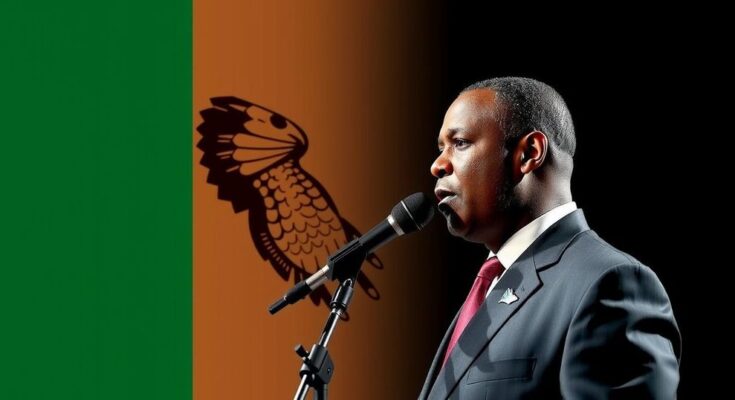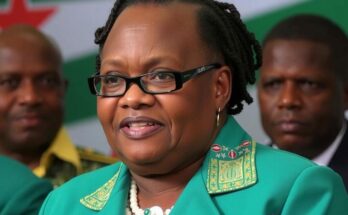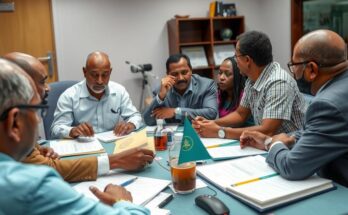Namibia is voting for president, with Vice President Netumbo Nandi-Ndaitwah as a leading candidate potentially making history as the first female leader. Facing public dissatisfaction due to economic challenges, particularly high unemployment, the ruling SWAPO party is under pressure. With 1.4 million registered voters and 15 candidates, including earlier rival Panduleni Itula, this election could significantly reshape the country’s political landscape.
Namibians are participating in a pivotal presidential election on November 27, 2024, with Netumbo Nandi-Ndaitwah, the country’s vice president, as a notable candidate for the presidency. At 72 years old, Nandi-Ndaitwah has a significant history in Namibia’s independence movement, having joined the struggle in the 1970s. She leads following early voting results from citizens abroad and military personnel. However, the ruling South West Africa People’s Organization (SWAPO) faces increasing dissatisfaction from the public over economic challenges, particularly high unemployment rates, which have been exacerbated for the youth. Recent elections in neighboring nations demonstrate a trend of electoral upheaval in southern Africa, and SWAPO’s declining popularity raises questions about its hold on power. Despite these challenges, Nandi-Ndaitwah remains optimistic, announcing ambitious plans to create jobs while addressing critical social issues, including women’s rights. Voter registration stands at approximately 1.4 million, reflecting about half of Namibia’s population. With a diverse field of 15 candidates, including closest rival Panduleni Itula, presidential aspirants are set to influence the political landscape significantly. If no candidate secures more than 50% of the vote, a runoff will follow—an unprecedented scenario in Namibia. As the country navigates its historical and socio-economic context, the election’s outcome is poised to carry substantial implications for Namibia’s future, particularly regarding representation and economic revitalization.
Namibia, located in southwestern Africa and formerly a German colony, operates under a political system shaped by its history of resistance against apartheid South Africa. Following its independence in 1990, the South West Africa People’s Organization (SWAPO) has been the ruling party. The current election features Netumbo Nandi-Ndaitwah, a seasoned politician with roots in the independence movement, as she vies to become the first female president of the nation. The electoral climate is tense, with rising dissatisfaction over economic conditions, especially among young voters. The overall political atmosphere mirrors regional trends in which longstanding ruling parties have encountered unexpected losses in recent elections.
The upcoming presidential election in Namibia is marked by the candidacy of Netumbo Nandi-Ndaitwah, who seeks to make history as the first female president amidst a backdrop of economic distress and rising public dissatisfaction with the ruling SWAPO party. As voting proceeds, the political dynamics could signal a shift in the power landscape, especially considering the precedent of electoral upsets across the region. As the country prepares to cast its votes, the focus will be on Nandi-Ndaitwah’s promises to combat unemployment and elevate women’s rights, emphasizing the election’s potential impact on Namibia’s socio-economic fabric.
Original Source: apnews.com



